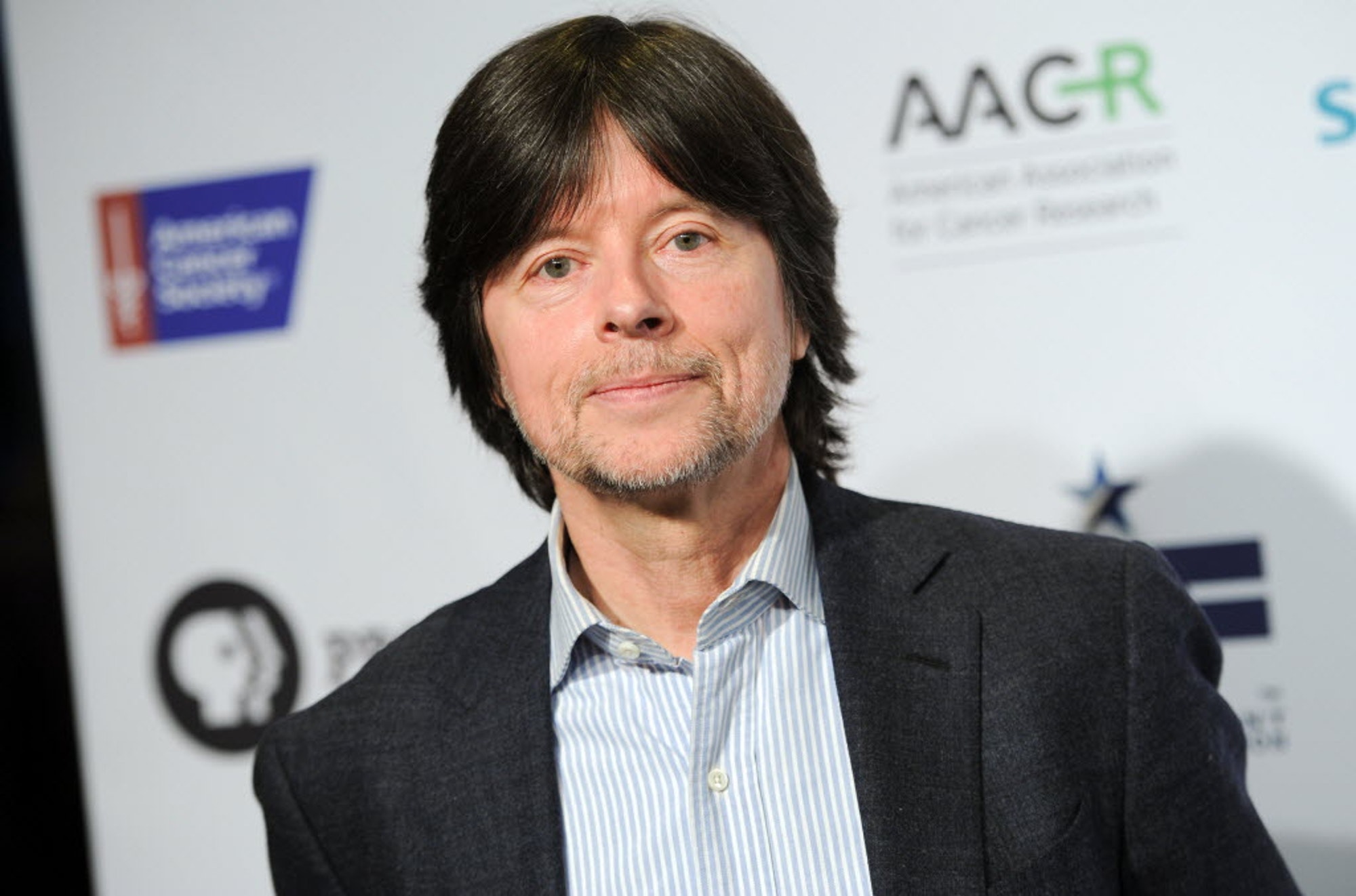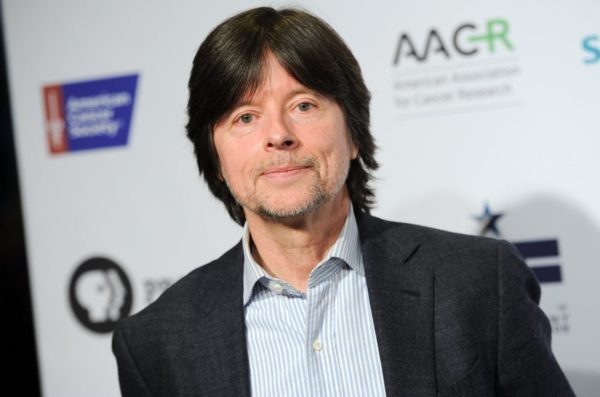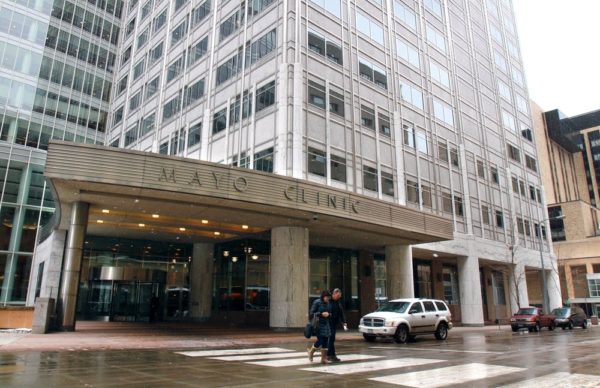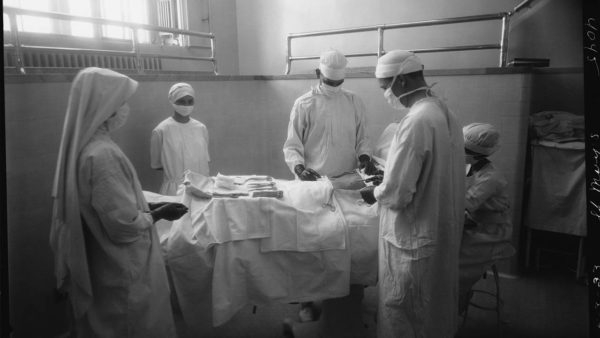
18 Aug Telluride Museum: Ken Burns, “Things Fall Apart” & Mayo Clinic, 8/26
On Sunday, August 26, 6 p.m., the Telluride Historical Museum is pleased to announce the 5th annual “An Evening with Ken Burns.” This year’s event features a screening of Episode 6 of Burns’ celebrated Vietnam War Series, “Things Fall Apart.” The evening also includes a post-screening audience Q&A session with Burns, as well as a book and DVD signing presented in conjunction with Between the Covers Bookstore. Burns is open to talking about his upcoming project for PBS about the Mayo Clinic, recently voted the top hospital in the US. Ask him why that is so.
Or scroll down to listen to Ken Burns’ podcast for a preview of talk.
Tickets to the event are $25 for non-members, $20 for members, and $5 for students. Tickets can be purchased here or by calling the Museum at 970-728-4334. All tickets will be distributed at the door.
“We continue to be appreciative of Ken Burns’ gracious commitment to the Telluride community and to the Museum specifically,” executive director Kiernan Lannon said. “We are once again providing the community with the rare opportunity to see one of America’s foremost documentarians and historians present his work and engage with this great community. We’re looking forward to another fantastic evening.”

When “Things Fall Apart,” they need time to heal.
Healing is the thread that ties together the two parts of this year’s “An Evening with Ken Burns.” The always highly anticipated event featuring the award-winning documentary filmmaker – and one of our country’s most intelligent and celebrated socio-cultural commentators – takes place Sunday, August 26, starting at 6 p.m.
Ken Burns has been making films for almost 40 years. His documentaries have been honored with dozens of major awards, including 15 Emmys, two Grammys, and two Oscar nominations. In September 2008, at the News & Documentary Emmy Awards, Burns was honored by the Academy of Television Arts & Sciences with a Lifetime Achievement Award.
Over the years, Burns has earned a reputation for an infectious gravitas, for delivering steak, rather than just the sizzle, through his work and at his rare public appearances such as the upcoming program in support of the Telluride Historical Museum, which includes Episode Six from Burns’ celebrated, 18-hour Vietnam War series: “Things Fall Apart” and a Q & A.

Scene from “Things Fall Apart,” Westmoreland giving a status report to President Johnson.
For Burns, who comes to town annually for the Telluride Film Festival, the summer evening at The Palm Complex is a chance to share some of his favorite themes in depth: American identity and individuality, race, and democracy writ large. Over the years, he has filtered those notions through the lens of baseball, National Parks, The Civil War, WWII, the uniquely American phenomenon known as jazz and Vietnam to name a few of the subjects of his eye-opening documentaries.
Last year the Pew Research Center polled people around the world about whether they thought life had been better or worse in their countries 50 years ago. Some Americans actually answered it was better, though protest marches were taking place around America, crime was surging, and race riots broke out in Detroit, Newark, Milwaukee and other cities. We lived in smaller houses, consumed much worse food in large quantities, worked longer hours and died, on average, according to one online source, seven years earlier.
And we were embroiled in the Vietnam War.
Ken Burns’ “The Vietnam War,” was 10 years in the making. The series brings the national crisis and the chaotic epoch it defined viscerally to life. The doc was also arguably Ken Burn’s most challenging project.
Episode Six covers the period from January 1968 – July 1968, beginning with the eve of the TET holiday, when North Vietnamese and Viet Cong forces launched surprise attacks on cities and military bases throughout the South, which consequently suffered devastating losses and cast grave doubts on Johnson’s promise that there was “light at the end of the tunnel.”

“Things Fall Apart”
The president, a politician’s politician with a long track record of legislative successes, became a casualty of a war without end. Johnson decided not to run again. Then the US was brought to its knees by assassinations and unrest.
“Things Fall Apart” will open your mind as it breaks your heart.
But then there is the Mayo Clinic to fix it.
“The Mayo Clinic: Faith-Hope-Science” is a new two-hour documentary executive-produced by Ken Burns and co-directed by Burns, Erik Ewers and Christopher Loren Ewers. The program is scheduled to air this fall on Tuesday, September 25, 9 pm ET, with a repeat broadcast on Wednesday, September 26, 10 pm ET.

The Mayo Clinic is the first and largest physician-led group practice of medicine supported by research and education. The organization now employs 64,000 people working on its main campus in Rochester, Minnesota and at campuses in Jacksonville, Florida and Scottsdale, Arizona. Mayo enjoys over $10 billion in revenue from those campuses and is regularly rated among the top hospital systems in the United States across a wide variety of specialities. And the institution invests over 600 million dollars a year on research. No wonder, patients are willing to fly or drive hundreds of miles to receive care there.
How does an organization sustain that kind of momentum for well over 100 years, especially in an industry that has changed as much as medicine? What can we learn from its example?
One answer is that at Mayo, everyone pulling the same oar or, in plain speak, teamwork. At Mayo all specialties are housed under one roof, plus its all-salary compensation system offers no incentive payments based on number of patients seen or procedures performed.
The bottom line on its bottom line is that Mayo is all about an extreme focus on patient needs and how teamwork creates a unique environment not present in most healthcare systems, ones in which care-takers tend not to know each other, fail to communicate, and even have trouble accessing past medical records. (Mayo, on the other hand, has one united electronic patient record system because of its deep integration, facilitating easy collaboration across specialties.)
“I think it all comes down to our core value, which is that the needs of the patient come first. I know that might sound kind of trite in today’s world, but our staff is extraordinarily committed. If you spend a day here, and you grab anybody at the Mayo Clinic and ask them what’s the purpose of your work, they would say ‘to meet the needs of our patients,’” CEO Dr. John Noseworthy told Business Insider in an interview a few years ago.
(Read the full interview here.)
In the end, Mayo wins by solving the whole of a patient’s challenge, not just its disparate parts.
Featuring Interviews with patients including John McCain and the Dalai Lama, Burn’s latest project tells the story of William Worrall Mayo, an English immigrant who began practicing medicine with his sons Will and Charlie in Rochester, Minnesota.
When a deadly tornado tore through their small community in 1883, the Mayos took charge of recovery efforts, enlisting the help of the nearby Sisters of Saint Francis to care for patients. Afterwards, Mother Alfred Moes, the leader of the convent, told Dr. Mayo she had a vision from God that instructed her to build a hospital, with him as its director. She believed it would become “world renowned for its medical arts.”

With healthcare polling as a top priority of most Americans and blending as it does historical narrative with contemporary patient stories, “The Mayo Clinic: Faith-Hope-Science” is a timely look at how one institution has met the changing demands of healthcare for 150 years—and it answers the question posed earlier: What can Mayo teach us about how to face the challenges of patient care today?
“When the Mayo Clinic began in the late 19th Century, the medical community was so amazed at its success, they dubbed it ‘The Miracle in the Cornfield,’” said co-director Erik Ewers. “But as unique as Mayo may be, it’s not a miracle. It’s about incredibly determined and compassionate men and women who came together to figure out how to create a model of care that puts patients before profits.”
“The history of healthcare is a larger reflection of who we are as a nation,” said executive producer Ken Burns. “It includes advances in science and technology, but also touches on more universal themes of love and compassion. This is an extraordinary story that places our fundamental need to care for each other within the larger framework of America’s healthcare system and modern medicine.”
“The Mayo Clinic: Faith-Hope-Science” is a production of Florentine Films, Ewers Brothers Productions, and WETA Washington, DC.
About WETA
WETA Washington, DC, is one of the largest producing stations of new content for public television in the United States. WETA productions and co-productions include PBS NewsHour, Washington Week, The Kennedy Center Mark Twain Prize, The Library of Congress Gershwin Prize for Popular Song, Latino Americans and The Italian Americans; documentaries by filmmaker Ken Burns, including The Civil War, Baseball, The National Parks: America’s Best Idea, The Roosevelts: An Intimate History and The Vietnam War; and productions by Harvard scholar Henry Louis Gates, Jr., including Finding Your Roots with Henry Louis Gates, Jr. (seasons three and four), Black America Since MLK: And Still I Rise and Africa’s Great Civilizations. WETA presentations include Martha Stewart’s Cooking School, Pati’s Mexican Table, Sara’s Weeknight Meals, Globe Trekker and Daniel Tiger’s Neighborhood. Sharon Percy Rockefeller is president and CEO. The WETA studios and administrative offices are located in Arlington, Virginia. More information on WETA and its programs and services is available at www.weta.org. On social media, visit www.facebook.com/wetatvfm on Facebook or follow @WETAtvfm on Twitter.
About PBS
PBS, with nearly 350 member stations, offers all Americans the opportunity to explore new ideas and new worlds through television and digital content. Each month, PBS reaches nearly 100 million people through television and nearly 28 million people online, inviting them to experience the worlds of science, history, nature and public affairs; to hear diverse viewpoints; and to take front row seats to world-class drama and performances. PBS’ broad array of programs has been consistently honored by the industry’s most coveted award competitions. Teachers of children from pre-K through 12th grade turn to PBS for digital content and services that help bring classroom lessons to life. Decades of research confirms that PBS’ premier children’s media service, PBS KIDS, helps children build critical literacy, math and social-emotional skills, enabling them to find success in school and life. Delivered through member stations, PBS KIDS offers high-quality educational content on TV – including a new 24/7 channel, online at pbskids.org, via an array of mobile apps and in communities across America. More information about PBS is available at www.pbs.org, one of the leading dot-org websites on the internet, or by following PBS on Twitter, Facebook or through our apps for mobile and connected devices. Specific program information and updates for press are available at pbs.org/pressroom or by following PBS Pressroom on Twitter.


Sorry, the comment form is closed at this time.